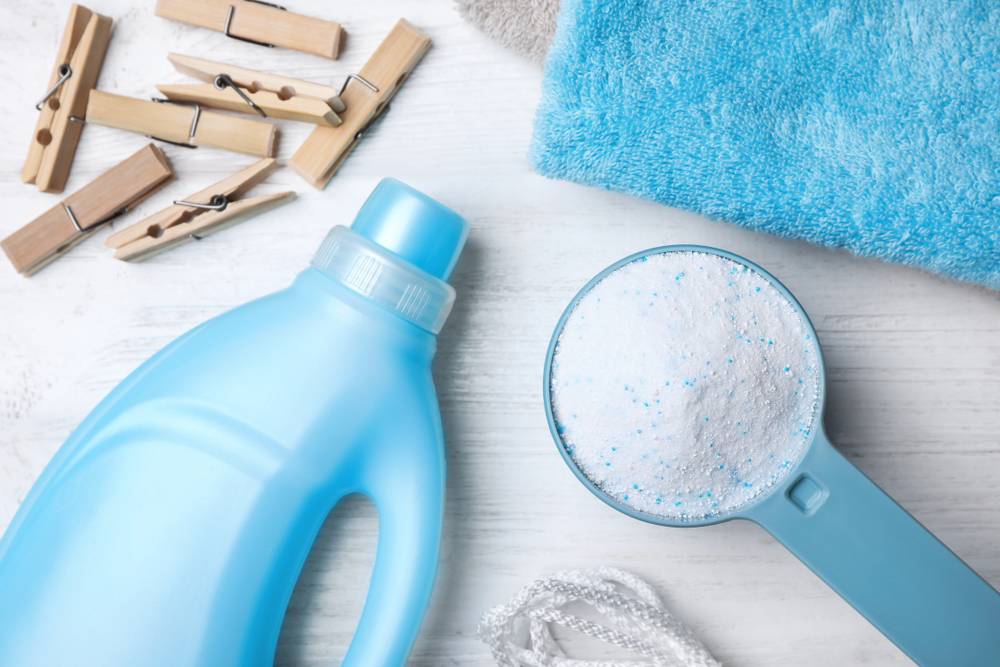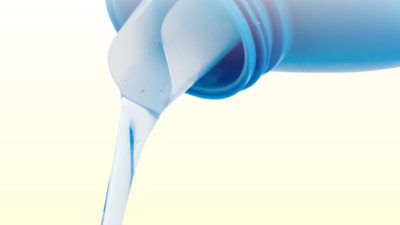Doing laundry is not a clean job, or someone call it “dirty” job, but someone’s got to do it everyday. And if you’re doing the laundry duty, it’s a must to choose a serious detergent to make the clothes as clean as you want. With the help of water, the rotation of the inner drum of the washing machine, detergents will clean out dirt, stains and odors.
But not all the detergents are the same. They’re different in cost, convenience, cleaning power. The two main types of detergent are liquid and powder detergent, which should you choose? Here are some reference.
1. Cost
Powder detergent is cheaper. The lack of liquid and lightweight cardboard boxes used in packaging keep the product weight and transportation cost of powder detergnet lower, it means lower price.
In the other side, liquid detergent is water, and stored in plastice bottles, so it’s more expensive in transportation cost, and customers have to pay more.

2. Efficiency
Powder detergent is more effective on mud stains; liquid detergent is better on grease stains.
The main surfactant (cleaning agent) in powder detergents (Alkylbenzene sulfonate) is more affective in lifting mud, grass, and bloodstains, which makes powder a great option for garden and athletic attire.
In liquid detergent, the alcohol ethoxylates can easily break down grease stains from cooking oil to car grease, making liquid detergents a top choice for everyday wear.
3. Pretretment
If you want to pretreat a stubbron stain on a shirt before washing it, it’s better to use liquid detergent, because you can apply directly.
If using powder detergent, you will have to mix it with water to form a paste, and apply the paste to the stain, quite inconvenient.
Manufacturers recommend using liquid detergent for stain pretreatment and powder for deeper cleaning.
4. Convenience
Liquid detergent is more convenient to use. It is usually supplied with a handle, a twist-off cap that repleace a measuring cup, a spout that enables splash-proof pouring in to your washing machine.

Powder detergent, in contrast, comes in a cumbersome box that doesn’t dispense as easily as liquid. You first have to pour the powder into a measuring cup, which will be messier.
5. Leaving residue on clothes
Both liquid and powder detergents contain fillers that help distribute active ingredients. The primary filler in liquid detergent being water, it dissolves easily at all water temperatures. This is important, because the more completely detergent dissolves in water, the more deeply it cleans and the less likely it is to build up in the washer and leave white residue on your clothes.
In contrast, powder detergent usually gets its granular texture from the filler sodium sulphate, which tends to dissolve less readily, particularly in cold water, so it’s more likely to accumulate on clothes. If you regularly wash your clothes in cold water to prevent color fading and reduce energy costs, liquid detergent is a better choice. In short, liquid detergent leaves less residue on clothes.
6. Safety to appliances
Clumps of undissolved powder detergent in the washer can also clog your washer or septic system and cause a malfunction. Notably, powder can block the washer’s drain pump or the hose leading to the pump, and the washer may fail to drain. The fillers in powder detergent can also interact with liquids in your septic system to form solids that clog the system and prevent waste disposal, but choosing powders labeled “safe for septic systems” can reduce this risk.
Because liquid detergent dissolves easily in water, it’s less likely to build up in your washer or clog septic systems, as long as you don’t exceed the recommended amount of detergent for each load.
